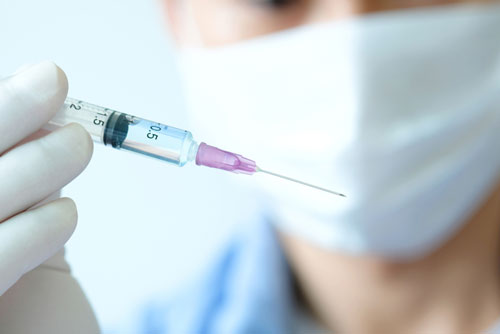We sit at home and wait. We watch friends, family, and the famous fall ill.
And still we wait.
As coronavirus spreads, the world is impatiently anticipating a medical game changer…something that will reliably cure or prevent COVID-19. Something that will allow us to get back to normal.
Two drugs used to treat malaria and lupus, hydroxychloroquine and chloroquine, have gotten a lot of media attention as potential COVID-19 treatments. There have been small studies from China and France that show the drugs help some patients.
But the medications have not been thoroughly tested. None of the trials were placebo controlled. So there’s no way to know if the patients who took them would have gotten better without the drugs, or perhaps even improved faster.
Nor were the studies reviewed by independent researchers, as is routine for high-quality trials.[1]
The professional organization that published the positive French study recently rescinded its approval. The International Society of Antimicrobial Chemotherapy said, “The article does not meet the society’s expected standard.”[2]
Hydroxychloroquine and chloroquine also have serious side effects. Most alarming is the fact that they can affect the heart. Hydroxychloroquine can cause heart arrhythmias.
Some hospitals in Sweden stopped providing hydroxychloroquine to treat the coronavirus after reports of adverse side effects, according to Swedish news media.[3]
The two drugs might be effective. They might not be. At this point, we just don’t know.
But they aren’t the only game in town.
New research suggests there are at least three potential breakthroughs that show as much if not more promise for addressing the coronavirus crisis:
- The Seattle vaccine. This was the first potential coronavirus vaccine out of the gate. It’s being tested at Seattle’s Kaiser Permanente Washington Health Research Institute. It’s still in its initial phase, which will determine if it is safe.
Dr. Anthony Fauci, the institute’s director, said the study was “an important first step” and was “launched in record speed.”[4]
The researchers were able to get a running start by building on knowledge from the SARS and MERS outbreaks. Both are forms of coronavirus.
This vaccine, which is being developed by Moderna Therapeutics, is a “nucleic acid vaccine.”
That means it uses genetic material—RNA—to enable the immune system to identify and fight the coronavirus. This technique has previously been used in veterinary medicine, but never before in humans.[5]
The advantage of an RNA vaccine is that it can be produced quickly.
Moderna is already buying more equipment so they’ll be ready to produce millions of doses if it proves safe and effective.
The Seattle vaccine won’t be ready for large scale immunizations for at least a year. That’s much faster than it usually takes to develop new vaccines. The process often takes 10 to 15 years.[6] - The Pittsburgh vaccine. Researchers at the University of Pittsburgh School of Medicine recently announced that they have successfully tested a coronavirus vaccine in mice.[7]
How soon before human trials? Study co-author Professor Louis D. Falo said, “We would like to think a month, give or take.”[8]
The vaccine consists of lab-created coronavirus proteins. Once exposed to them, the immune system learns to recognize and attack the virus.
Professor Falo explained that this vaccine has a unique delivery system. It would be given to humans using a tiny patch of “microneedles.” These consist of viral proteins and sugar. The microneedles reach the bloodstream after dissolving into the skin.
Unlike other vaccines, this one wouldn’t need refrigeration.
That’s a big plus, according to Dr. Bruce Y. Lee. He’s an expert on pandemic response. He said not requiring refrigeration makes a vaccine easier to mass produce and distribute.[9]
“It’s a huge undertaking to vaccinate a large population as quickly as possible,” said Dr. Lee.
The Pittsburgh researchers hope to get FDA permission to begin human testing in the next few months. The vaccine could be ready in 18 months or less. - Blood plasma treatment. If there’s one thing we could desperately use other than a vaccine, it’s an effective treatment.
In the days before vaccines, “convalescent serums” were used against a number of infectious diseases including the 1918 Spanish flu pandemic.
The method is simple: Blood plasma from people who have survived a particular infectious disease is injected into others who are suffering from the same illness. The blood plasma contains antibodies that were generated to target the disease.
The treatment has rarely been used in the U.S. in recent decades. But it helped patients recover during the 2002 SARS outbreak.[10]
“It’s a stopgap measure we can put in place quickly,” said Dr. Jeffrey Henderson of Washington University School of Medicine. It’s not a cure, “but rather a way to reduce the severity of illness.”[11]
Former COVID-19 patients in New York and Houston have already donated plasma to generate serums. Hospitals and blood centers are preparing for donations from hundreds more.
The Mayo Clinic will lead a national coronavirus serum study. The American Red Cross will head the effort to collect and distribute the plasma.
Dr. Arturo Casadevall is an infectious disease expert at the Johns Hopkins Bloomberg School of Public Health. He said that until vaccines are ready, a serum “might be our best option.”
Editor’s Note: Discover the single best supplement for stronger immunity… The fruit extract that helps 93% of people with respiratory viruses get better in just two days… The germ hotspot that most of us forget to sanitize. Find all this and more is in Independent Healing’s Coronavirus Pandemic Guide. Go HERE.
Related Articles
Coronavirus Stress: 5 Ways to Keep Calm and Carry On
9 Coronavirus Symptoms You Should Watch For
Coronavirus: 8 Dos and Don’ts
for Social Distancing
Like this Article? Forward this article here or Share on Facebook.
[1]https://www.usatoday.com/story/news/health/2020/04/06/hydroxychloroquine-trump-anthony-fauci-peter-navarro-whos-right/2953317001/
[2]https://www.nytimes.com/2020/04/06/us/politics/coronavirus-trump-malaria-drug.html
[3]https://www.newsweek.com/swedish-hospitals-chloroquine-covid-19-side-effects-1496368
[4]https://www.niaid.nih.gov/news-events/nih-clinical-trial-investigational-vaccine-covid-19-begins
[5]https://www.medicalnewstoday.com/articles/coronavirus-vaccine#when-will-it-be-ready
[6]https://www.historyofvaccines.org/content/articles/vaccine-development-testing-and-regulation
[7]https://www.thelancet.com/pdfs/journals/ebiom/PIIS2352-3964(20)30118-3.pdf
[8]https://www.jsonline.com/story/news/2020/04/02/researchers-pittsburgh-have-developed-potential-coronavirus-vaccine/5107907002/
[9]https://consumer.healthday.com/infectious-disease-information-21/coronavirus-1008/another-covid-19-vaccine-being-tested-in-mice-756367.html
[10]https://www.nbcnews.com/health/health-news/fda-working-treatment-coronavirus-blood-recovered-patients-n1165231
[11]https://apnews.com/417e8315073e89a2a6b3a29bc0824956

